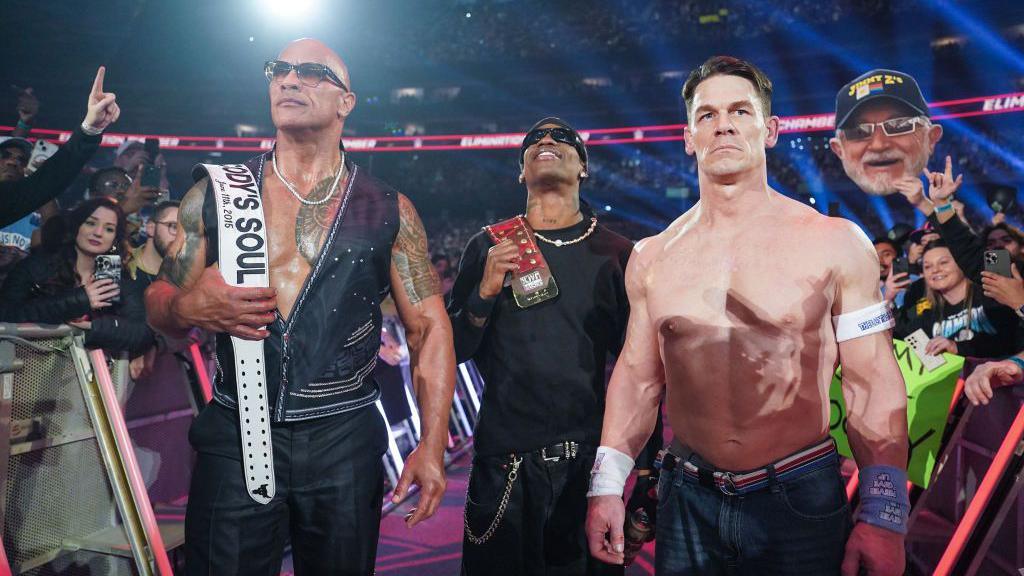It’s been one of those weeks: The kind where the Syrian government bombs neighborhoods into dust, a hundred or so people die, and despite international condemnations, the black hole of the uprising just keeps swirling.
Is there any reason for hope? I decided to ask someone who predicts the future for a living.
Videos by VICE
For more than three decades, NYU professor and game theorist Bruce Bueno de Mesquita has been using a carefully refined mathematical model to perform political forecasts. His publications — like 2011’s The Dictator’s Handbook: Why Bad Behavior is Almost Always Good Politics — are sought-after in the private and public sectors. The CIA, the State Department, and the Department of Defense are all regular clients — in fact, the CIA once said his model popped out accurate predictions 90% of the time.
His main tool is selectorate theory. It’s a subset of game theory that focuses on political leaders’ relationship to the “selectorate” — people who nominally have a say in picking a leader. At the hard core of any selectorate is what’s called the “winning coalition” — the people who actually get to determine whether or not a leader gets to stay in power.
Over the course of our conversation, Bueno de Mesquita offered me some remarkable and unusual insights into the Syrian bloodbath — and gave some truly shocking predictions about China, Saudi Arabia, and other places run by less-than-pleasant men.
All moral questions aside, has Bashar al-Assad been a smart dictator during his 11 years in power?
Yes!
When the Syrian revolt broke out, how likely did it seem to you that Assad would still be in power a year later?
Not very. And I believe he wouldn’t be, had he not been saved by the cash given to him by Iran and Iraq. My model with Alastair Smith of revolutionary change — based on selectorate theory — indicates that significant infusions of foreign aid increase the odds of greater autocracy, greater repression, and reduced likelihood of revolutionary success.
Credit: Bill Holsinger-Robinson
From a game theory perspective, what would it take for the opposition to win?
The key is more in the hands of the winning coalition that keeps Assad in power. The revolutionaries have to convince members of Assad’s key support group to defect to them. To do that, [defectors] must believe that their expected value from joining the opposition is greater than their expected value from continuing to be loyal to Assad.
Since Assad — thanks to Iran and Iraq’s aid package — has the money to buy their loyalty and the opposition doesn’t, it’s difficult to see substantial defections from the senior backers of Assad.
Aid to the rebels could offset Assad’s current advantage, as could shutting down the flow of money from Iran and Iraq to Syria (difficult to do), assistance from Russia (almost impossible to stop), and aid from Venezuela, too. But the rebels aren’t organized in a way that makes providing offsetting aid feasible. And, indeed, given their lack of coherent organization, such aid money probably would be wasted.
Who’s in the “key support group” you just mentioned?
Assad’s key support group consists of family, senior military leaders and senior civil servants, all drawn from his Alawite clan, which represents only about 12% of Syria’s population and 80% of the officer corps in the military — but 100% of the most senior military.
The people on the street are an alternative to Assad and his support coalition. Their intention is to bring down the regime and to alter its institutional structure. As with all revolutionaries, they promise democracy. Should they win, there’s a consequential probability that they’ll liberalize somewhat and make the regime somewhat more representative — after all, the country is almost two-thirds Sunni and is now run by a small Shia sect.
But, like most revolutionaries, once in power, the inclination for extensive liberalization and democratization tends to weaken dramatically.
Doesn’t the brutal violence used by Assad work against him, in that it delegitimizes him in the eyes of Syrians and the world community?
He had no legitimacy — I am always mystified by the idea that a regime that has self-selected itself for power is thought to have legitimacy in the eyes of the citizenry or the world.
What works against Assad is the risk of defection from his key supporters. With them he can hold on; without them, he’s finished. This is about control over the policies and revenue of the society, and as long as his key backers continue to exert strong influence over both — for their own benefit — they’ll try to hang on.
Moving on to a different country: can the recent anti-Putin protests make a dent in his rule?
Not likely, unless the price of oil drops sharply.
Putin is somewhat vulnerable because his support coalition is larger, the society more diverse and complex, not reliant on aid, but fairly reliant on oil revenue. Also, he hasn’t consolidated an anti-democratic form of government as fully as the Assads did, but Putin has been working tirelessly at doing so. The Russian government owns the media and controls the right for opposition candidates to hold rallies, et cetera.
Where else do you see regimes that are close to collapse or reform?
Saudi Arabia and Morocco have a good chance of becoming more constitutionally-oriented democracies in the next five years. China has a good chance to institute some meaningful political reform in the next few years.
Really? China and Saudi Arabia?
Non-democratic, small-coalition governments that undergo a leadership transition typically liberalize somewhat at least for the first two years after a transition. Sometimes this liberalization can be locked in — difficult however in China and Saudi Arabia’s case.
China is about to change its president. Because the risk of replacement is higher in the first couple of years for dictators than democrats, newly ensconced dictators simulate the behavior of democrats. In China’s case, the statistical estimates derived from the selectorate theory’s predictions encourage the belief that modest liberalization — increasing local political competition for instance, a somewhat freer press, and more freedom to assemble, at least in protest to local government decisions, if not national ones — will occur and be retained.
China has faced growing political unrest in the form of local demonstrations which, combined with leadership change and very few natural resource curse effects, is a recipe for sustained liberalization.
Saudi Arabia’s government is repressing the risk of anti-government demonstrations mostly by spending billions to buy off discontent. Since King Abdullah is believed to be seriously ill, a transition in the next few years is likely. [Crown Prince] Naif is the likely successor. He’s fiercely conservative, but also nearing 80. During a transition, he’s likely to be seen as a short-term leader.
Credit: Ambard Abd Rabbo
The selectorate-theory analyses suggest a significant probability that the ruler after Naif will move the country toward a constitutional monarchy, locking in substantial family wealth while pushing more political responsibility onto accountable — and therefore easily removed — leaders, along the lines of the British monarchy’s transition a couple of hundred years ago.
Will the Occupy movement have any long-term effects on American politics?
Not really. The U.S. already has a fairly large winning coalition, and the Occupy movement isn’t arguing for a change in the political selection process that would alter the winning coalition’s size. They’re calling for policy shifts that would result in fewer private rewards going to the “1%” and, if they won offices, would probably push for more benefits going to their supporters, rather than to the “99%” — most of whom aren’t in Occupy’s coalition. Thus, their push is for a shift in private rewards away from one group and toward their group.
It’s important to keep in mind that change-oriented groups always call for greater equity but, if they succeed in coming to power, then being incumbents, look for ways to shift benefits to themselves and their key backers. Sometimes such movements actually work on behalf of the broader interest, because they depend on many for support. But — so far, at least — the Occupy movement doesn’t seem to fit selectorate theory’s notion of a group oriented to changing political institutions so much as a group oriented toward redistributing benefits their way, at the expense of the existing winning coalition.
The political upheavals of 2011 have often been portrayed as victories of the human spirit. To what extent were they just simple mathematics?
The two statements are compatible with one another, so it really isn’t a choice of either/or. The mathematics helps us see when upheavals translate into real reform and when they don’t.
According to your model, is humanity generally moving away from dictatorships? Or should we fear the future?
I believe we’re moving toward greater individual freedom. However, the modeling my colleagues and I have done suggests that the equilibrium mix of freedom and oppression isn’t 100% one and 0% the other.
The exact distribution is subject to parameter estimates and, in the long term, always favors much more freedom than oppression, but oppressive regime occurrence does not go to or get close to zero.
More
From VICE
-

WWE via Getty Images -

Lexie Moreland/WWD via Getty Images -

Camp Snap -

Juiced